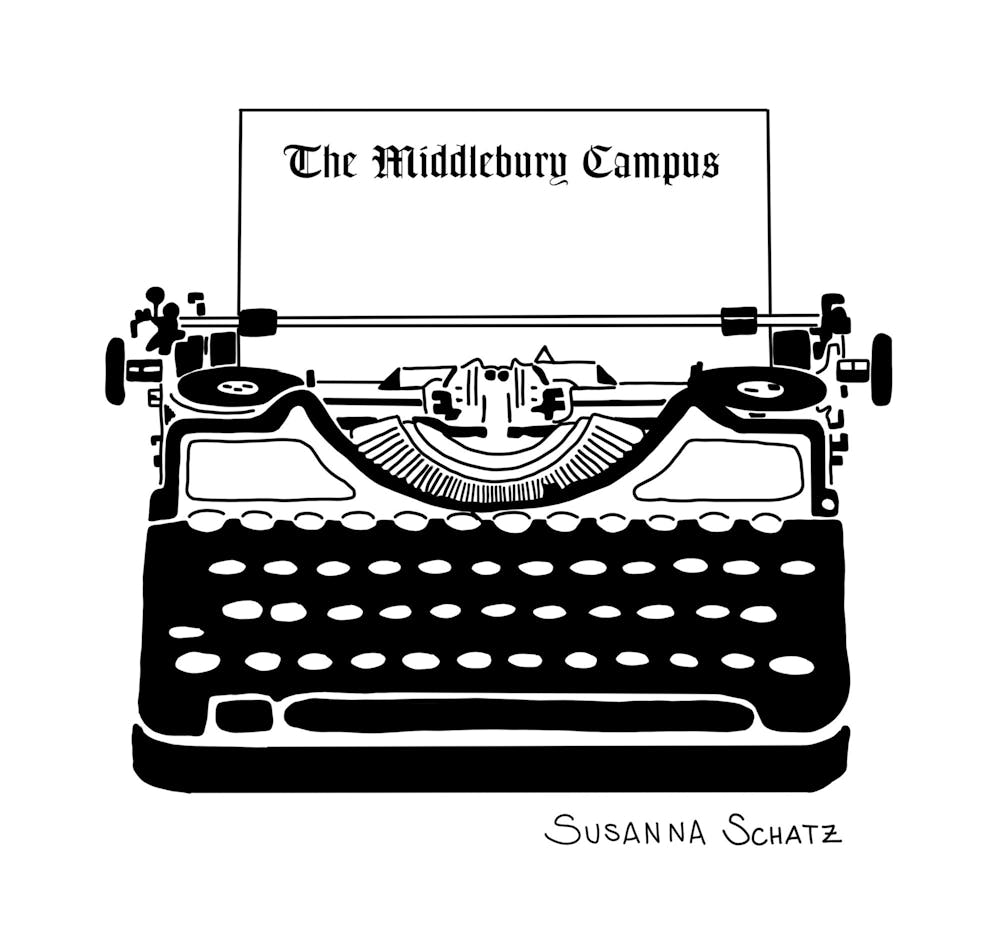As conversations on campus and in the national discourse continue on the value of a liberal arts education, we chose this week to reflect on what the liberal arts can and should provide to Middlebury students in the 21st century. A distinction has emerged in the past decade between those who find the liberal arts antiquated in the 2010s and 2020s — suggesting instead that post-secondary education be primarily a path to learning employable skills — and those who firmly believe that the liberal arts remain educationally and personally relevant.
In this time of tension over the meaning of higher education, we advocate for a middle ground between a liberal arts pursuit of knowledge for its own sake and technical skill building meant to prepare students for future careers. A love of learning can coexist with the reality of post-graduate employment and the senior-year stress that comes to anyone on the job hunt. Middlebury can educate the mind and build our careers at once; the Center for Careers and Internships (CCI) can and should coexist with the Public Humanities Labs.
We assert that Middlebury is capable of being an attractive institution for students interested in learning and students interested in gaining employable skills. Furthermore, the distinction between those two things may not always be as stark as some suggest. In fact, we believe most Middlebury students want both a path of variety that leads to both personal intellectual enrichment and their desired career path. One board member mentioned that you cannot force someone to be intellectually curious, and while that is a reality of education, that cannot be a license for the institution to refrain from demonstrating the importance of curricular breadth. A key point of discussion was the idea of the first year seminar, which prompted a variety of positive and negative anecdotes from board members. We believe that the first year seminar should work to correct for the inequities of differing high school learning experiences across matriculating students.
According to Middlebury, the mission of the first year seminar is to “familiarize recent high-school graduates with the standards for college-level work in thinking, speaking, writing, and contributing to an academic community.” This is an important goal, and one that the institution should strive to accomplish by reforming the program as it currently exists. Through our discussion on the role of the course, we found that students experience major differences in the rigor and scope of their first year seminar. This is an unfortunate reality for students who do not receive the close mentorship and emphasis on writing skills necessary to succeed in the future.
In order to improve the course, there must be more enforceable standardized expectations for students and professors alike. We believe all first year seminar courses should conclude at the end of the semester with some kind of long formal writing assignment. The school should ensure that all first years have an equal opportunity to practice writing and analysis no matter which department they study in. It should retain the small class sizes that will enable professors to devote closer attention to each student, in keeping with the spirit of the liberal arts.
The board, although populated by History, English and other humanities majors, recognized the extra demands placed on students studying science, math and economics at the college. The college should work to foster opportunities for students in math and science departments to pursue their interests within their major and to explore the full spectrum of the college’s offerings in the liberal arts.
We question the effectiveness of the distribution requirements for STEM students, which often allow them to choose classes widely known as easy to pass for the sake of focusing on their otherwise intense workload. Distribution requirements shouldn’t be merely a reprieve — they are there because they are instruments of Middlebury’s liberal arts promise. Departments must program their courses to ensure that students can gain the depth from their major and the earnest exposure to other fields that they deserve.
One solution proposed by board members was placing a heavier emphasis on the history, sociology and humanities-based aspects of instructed STEM material within the STEM courses themselves. This is already partially accomplished by some STEM courses that meet the College Writing (CW) requirement, an aspect of the curriculum we believe could use refinement similar to the first year seminar. If students understand the larger implications of their technical and scientific work in the world, Middlebury will have accomplished its goal of supporting students interested in pursuing STEM careers and of bestowing them with a broad liberal arts education.
The need to discuss what Middlebury’s educational ethos is has become even more important in light of ongoing proposals to modify the number of credits required for graduation, Middlebury’s eight distribution requirements and more. As we seek to reform the way our institution teaches and what it values most, we call for students and faculty alike to seek a middle ground between the purely theoretical and the purely practical to find a career after graduation. The best way to signal our dedication to education is through the first year seminar — the very first class Middlebury students enroll in here.
While we enjoy our four fleeting years at the college, wrapped up in chemistry textbooks, Plato’s “Republic” and numerous scholarly articles, our futures are equally dependent on a balance between career and cultivation. It’s possible to do both — we promise.




